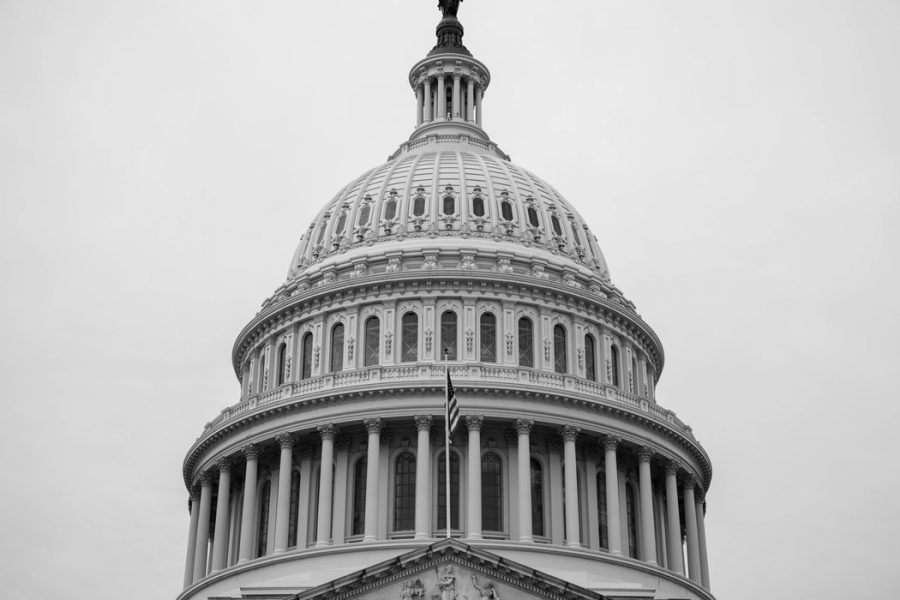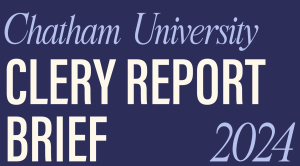Guest Voices: Biden outlines agenda that at most aligns with our values, at least centers policy
Guest Voices is an occasional series that invites students or staff to share their views about a topic of importance and interest to them on campus.
February 10, 2021
By Dr. Jennie Sweet-Cushman, Professor of Political Science and Public Policy at Chatham University
Now that Joe Biden has officially been sworn in and taken office as the 46th president of the United States, there will be a lot of change that happens very fast. From appointing new cabinet officials (the most diverse in presidential history) to a flurry of executive orders, President Biden has been moving quickly to make his first 100 days in office meaningful.
The first 100 days of a new administration is an arbitrary timeframe dating back to President Franklin Roosevelt’s first term in office when the administration tackled the Great Depression with major policy proposals that dramatically changed the federal policy landscape. Presidents since have seen this period as an opportunity to make their mark and promote their policy agenda clearly to the American people. President Biden’s plans for his 100 days are decidedly ambitious, tackling issues of climate change, the coronavirus pandemic and racial injustice just within the first few days.
I welcome the focus on policy. President Trump’s presidency further shifted American attention toward what political scientist Bruce Miroff called “the presidential spectacle,” which emphasizes personality over policy.
And in no surprise to anyone, Americans are becoming more and more ideological in their partisanship and less focused on any particular policy challenges or solutions. Policy is the actual work of governance and where American potential lies.
The Biden administration, surprising many (including me!) who had pegged him as a careful centrist, has laid out the most progressive policy agenda in history. Those that align with Chatham’s mission and its three components — engagement and responsibility, respect for diversity and a commitment to sustainable living — will find much to cheer for in this agenda.
First, in promoting greater faith in and engagement with government, Biden has a plan for government reform that includes greater transparency, diversity and accountability and reduced influence of money in politics. We’ve already seen the return of the daily White House Press briefing, complete with the first-ever ASL interpreter. He also is absolutely likely to support the Democratic Congress’s efforts to reform elections. The very first piece of legislation introduced this term, (HB 1) The For The People Act requires sweeping and consistent changes to state election law to make voting more fair and accessible.
Biden also has demonstrated an enhanced commitment to diversity and civil rights. Selecting the first woman/woman of color as a running mate and nominating a diverse cabinet was just the beginning. His first 100 days have already included reversing President Donald Trump’s ban on military service from transgender people and his stimulus plan, which passed the House late last week, included multiple proposals developed by Black Lives Matter for assistance for communities of color hit disproportionately hard by COVID-19, along with calls for expanding community health centers and relief for minority-owned small businesses. Other initiatives focus on health care for Black women and criminal justice reform.
Biden also, via executive order, put a temporary block on deportations for undocumented immigrants and established a reunification task force to find children who had been separated from their parents at the U.S. border under prior immigration policy.
Sustainability-minded Americans (and Chatham Cougars) should also be cautiously optimistic about the Biden agenda. After the Trump administration rolled back a shocking number of environmental regulations and famously withdrew from the Paris Climate Agreement, Biden immediately rejoined, is working to reinstate Trump-era rollbacks and — for governance nerds like me — has an impressive coordinated strategy that pulls on multiple areas of the federal government to take action in the realm of international diplomacy, clean energy, sustainable agriculture and transportation reforms that emphasize cooperation with state and local officials. This, in particular, makes me feel right about believing Biden would be much more proactive about the environment than many felt he would be during the campaign, including some of my students.
There is much more that could be discussed about Biden’s agenda, but an issue I will close on is of interest to me (federal student loan balance: $60,152.08) and I’m sure many, many Chatham students, too. Most students will emerge from their bachelor’s degree enriched by their educational experience but impoverished by the ever-increasing burden of paying for it. Pennsylvania’s college graduates have consistently held the highest level of student debt in the country with an average of $40,000 of loans needing repayment. While experts still emphasize that a college degree is definitely worth it in terms of lifelong earnings, the debt burden has significant impacts from reducing homeownership to the declining birth rate.
The new administration is considering proposals to eliminate some portion of debt for some federal borrowers. (Quick overview: Biden has suggested the Senate proposal of $50,000 might not be constitutional by executive order. Senator Elizabeth Warren and others disagree. Filibuster threats make it unlikely Congress could do it through a legislative process.) However, Biden did extend the COVID-relief focused Trump administration forbearance period through at least October 2021.
Of course, many of these policy proposals have countless barriers to overcome before they begin to impact the policy landscape. However, Democrats recognize the opportunity a unified government is presenting them and how fleeting this opportunity may be, so they are moving quickly and in a remarkably unified way — neither of which are hallmark traits of the modern Democratic Party. I imagine this means there will be a fair amount of change, but we must be realistic about what our system of government will allow, especially in a time of hyperpolarization. At the very least, though, the rejuvenated focus on examining the policy needs of 2021 America is a healthy exercise.

BIO: Jennie Sweet-Cushman has taught political science and public policy at Chatham University since 2013. A former congressional campaign manager for former Rep. Bart Stupak (D-Michigan), her research focuses on women’s political ambition and representation in the U.S., as well as gender equity in academia. She currently serves as an appointed official on Pittsburgh, Pennsylvania’s Equal Opportunity Review Commission.







